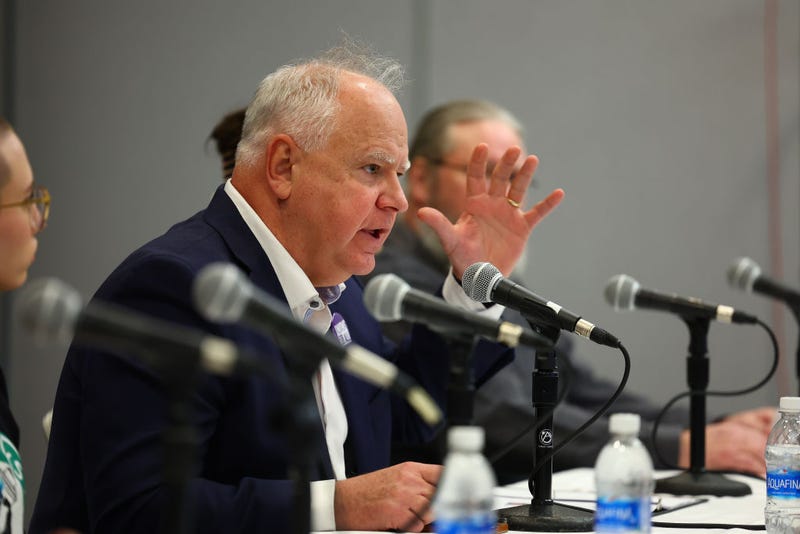
Minnesota Governor Tim Walz announced the details of the first of four packages within his soon to be proposed One Minnesota Budget on Tuesday while visiting the Adams Spanish Immersion School in St. Paul.
During the announcement, Walz shared that the $12 billion proposal would lower the cost of child care for families in the middle-class, make the largest investment in public education in state history, and help reduce child poverty by giving families in need expanded tax credits.
“For a middle-class family with young kids, this budget would cut the cost of child care by thousands. For kids across the state, it will reduce their chances of living in poverty,” Walz said. “And for our students, it will provide the single-largest infusion of state funding in history, allowing them to provide every student, in every neighborhood, a world-class education.”
Walz also shared that his proposed plan would include universal school meals for students and look to expand access to special education and mental health resources for those who need it.
“As a former teacher, coach, and parent, I have made it my mission to make Minnesota the best state in the country for kids to grow up. We have a historic opportunity to take bold action to deliver for Minnesotans, and we’re putting forward a budget that meets the moment,” Walz said.
Lt. Governor Peggy Flannagan was also present at the school on Tuesday. She shared from her own experiences, saying that the education budget would take away the shame students feel when using programs that offer free lunches.
“This is the budget I’ve been working towards my entire career,” Flanagan said. “From lowering the cost of child care to reducing child poverty with the Child Tax Credit, and providing universal school meals to all students, the investments we make this legislative session will resonate for generations. It’s a very big deal for our kids.”
The budget would look to offer relief to the middle class and lower income families by offering $539 million in tax credits in 2024-2025 and $547 million in tax credits for 2026-2027 to help grow the Child and Dependent Care Credit. According to Walz’s administration, this would reduce costs for upwards of 100,000 Minnesota households.
Families making under $200,000 a year with one child would receive $4,000 a year child costs, those making the same amount with two children would receive $8,000, and families with three would receive up to $10,500.
The One Minnesota budget would also look to raise school funding to benefit children and young people’s social, emotional, and physical health. The funding would allow schools to hire more counselors, nurses, social workers, chemical health counselors, and more.
Other portions of the budget would look to create a new Department of Children, Youth, and Families, meant to put more of a focus on child, youth, and family priorities.
State Republicans have addressed the proposed components of the One Minnesota Budget, saying that they are a “public relations stunt,” Senator Jason Rarick (R- Pine City) said in a statement.
“Providing free lunches for every student ignores the already available funding for families who need financial assistance. Neither Senate Democrats nor Governor Walz explain the impact eliminating these programs will have on other funding that is tied to free and reduced meals,” Rarick said.
Rarick also criticized Walz’s move to tie education funding to inflation, saying it removes all accountability from state leaders to demand more from the education system as test scores continue to fall in the state.
He also took shots at the new state agency focused on children and families, calling it a “guaranteed explosion in spending that we don’t need.”
“Senate Republicans will continue to prioritize the special education cross-subsidy, proven programs to improve academic outcomes, and getting kids back on track, without raising taxes on their parents or imposing mandates on schools,” Rarick said.
The additional components of the budget are expected to be announced by the governor within the coming weeks, as the entire two year budget will be released on Jan. 24.




